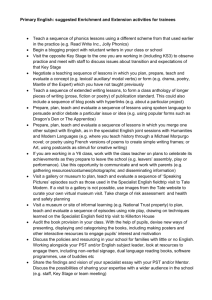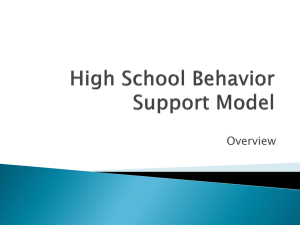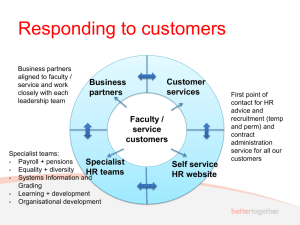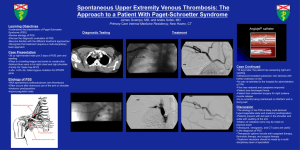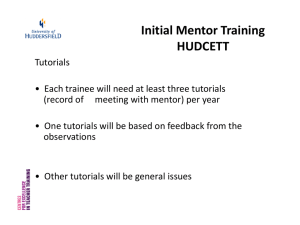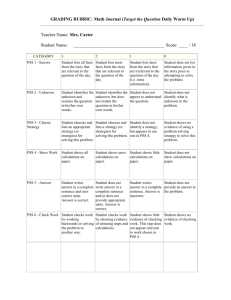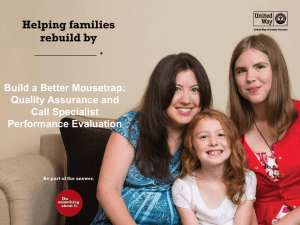Stubberfield - University of York
advertisement
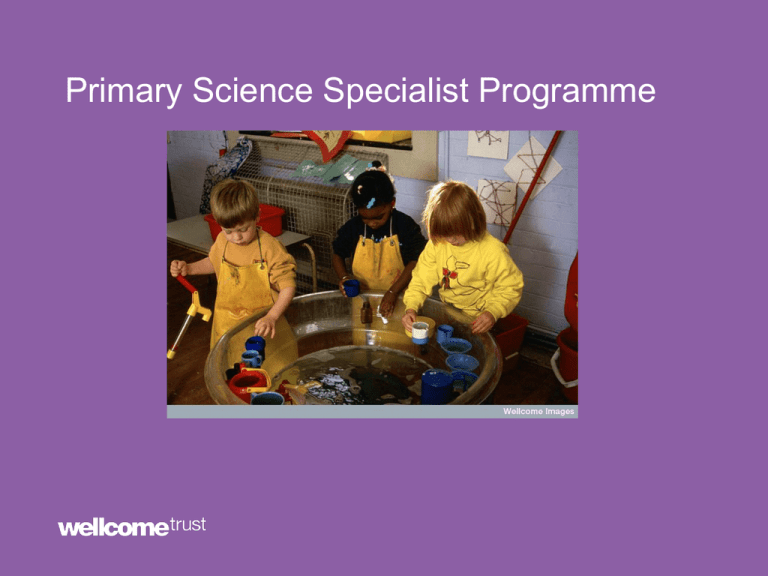
Primary Science Specialist Programme Wellcome Trust Education Strategy Our Priorities: • Stimulating debate and influencing policy • Investing in our teaching workforce • Trusted deliverer of contemporary resources • Being a good neighbour to our local schools • Commission research and analysis Our Priority areas: • Primary education • Informal learning • Understanding learning We will look to reinvigorate the teaching of science in primary schools, improving the expertise of teachers and strengthening the continuity of science education within and between phases. (Wellcome Trust, Education Strategy) Expertise in Primary Science • National data from the GTC shows that there are around 6000 primary teachers with a science-related degree. • Most recent data from School Workforce Census shows there are 197 000 primary teachers (FTE) in 17 309 primary schools. • This shortage of subject expertise within the primary sector has led to teachers who have low confidence relating to science. Strengthening Expertise in Primary Science • Science- specific initial teacher training courses • Attracting more science graduates into primary teaching • Primary Science Quality Mark • AstraZeneca Science Teaching Trust (AZSTT) College of Primary Science Teachers • Chartered Science Teacher • Wellcome Trust Primary Science Specialist Programme Primary Science Specialist Every school should have, or have access to, a Primary Science Specialist with the necessary subject knowledge, pedagogical concept knowledge and skills to successfully lead and develop science within their school. Primary Science Specialist (PSS) Programme Every school should have, or have access to, a primary science specialist to lead science and make it an inspirational subject. Over-arching aims of the PSS Programme: •raise the status of science •improve teacher knowledge, confidence and skill •improve the attitudes and achievements of children The Primary Science Specialist Pilot Teachers were recruited to take part in a pilot study for the PSS from schools where the science subject leader did not have a qualification in science above GCSE. The Programme: •24 days over one academic year •Three strands – Subject Knowledge, Pedagogical Concept Knowledge and Subject Leadership •Delivered at the National Science Learning Centre, Regional Science Learning Centre, as well as work in school and online elements. Measures of Success Impacts on Primary School Pupils •science-specific attitudes and aspirations of pupils •achievements of pupils Impacts on Science Coordinators •enhanced science-specific subject knowledge •improved pedagogical concept knowledge •increased confidence Impacts on Schools •status of science within the school •school-wide development of science •the professional development of other teachers within the school, including their science-specific subject knowledge, pedagogical concept knowledge and confidence. Evidence in education We need clear information about the outcomes of this intervention. An independent evaluation has been commissioned from the Department of Education and the Institute for Effective Education at the University of York. Development of the PSS Programme We will use this evidence-based research to reinvigorate the teaching of science in primary schools, improving the expertise of teachers.


